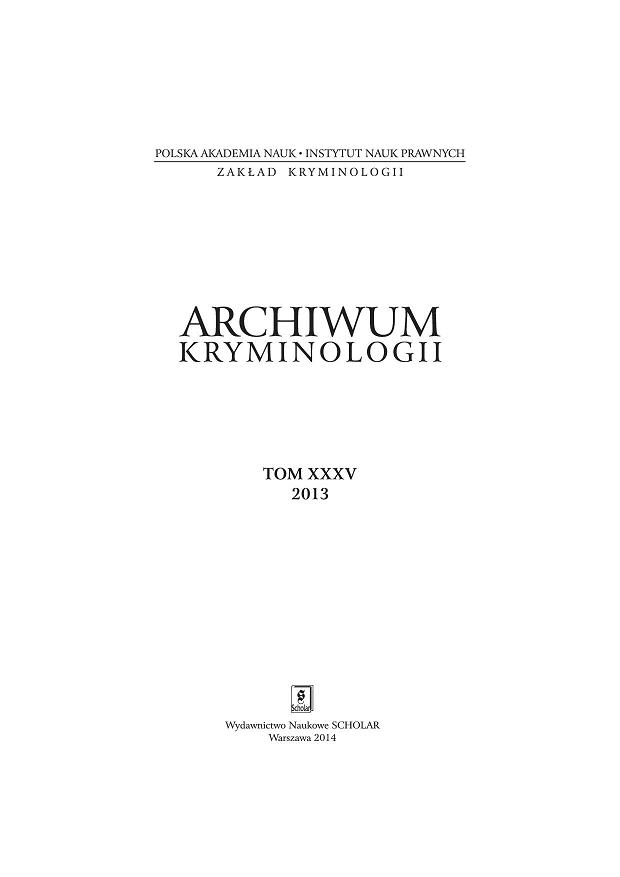Prawo penitencjarne na tle innych gałęzi prawa i wybranych problemów polityki karnej i penitencjarnej
Penitentiary law against the background of other branches of law and and selected problems of penal and penitentiary policies
Author(s): Paulina WiktorskaSubject(s): Law, Constitution, Jurisprudence
Published by: Instytut Nauk Prawnych PAN
Keywords: PENITENTIARY LAW; PENAL POLICY; PENITENTIARY POLICY;
Summary/Abstract: The article consists of two parts. The first systematises definitions of penitentiary law and presents relations between penitentiary law and other branches of law and fields of science. The voices in discussion on penitentiary law sometimes differ, even in such basic issues as the scope of the very term. This sometimes gives rise to difficulties in qualifying particular provisions to a particular branch of law and causes doubts which rules to apply to particular institutions. Relations between penitentiary law and executive penal law, procedural law, penitentiary science and penal and penitentiary policies are discussed. The second part of the article discusses selected problems of current penal policy related most of all to the use of imprisonment sentence. Between penitentiary law and penitentiary policy or, more broadly speaking, penal policy there are obvious relations. On one hand, this policy is shaped on the basis of the letter of law, on the other hand, based on collected experience, it forces changes in law which fails to respond to actual challenges. Sometimes penitentiary policy, and even mere penitentiary practice, influences provisions of penal law, including penitentiary law, directly. It also happens that law and penitentiary policy (or penal one) fail to meet as far as their goals and assumptions are concerned. It seems it is so in the case of imprisonment, which often looks different in penitentiary law provisions and in statistics resulting from employment of penal and penitentiary policy. The basic paradox consists in that, in spite of observed decrease in crime levels , penitentiary system becomes more and more inefficient. Poland has one of the highest prisonisation indices in Europe and constantly growing number of persons sentenced by the courts and waiting for imprisonment sentence to be executed .The waiting line for imprisonment is approaching the number of the imprisoned. This may be due to a several reasons. Firstly, since the beginning of 1990s there has been a steady increase in the shortest imprisonment sentences (of up to 6 months) which were often administered to those guilty of driving a vehicle under alcohol influence. Secondly, Polish prisons are places where a significant number of imprisonments due to probation violations are served – which shows the weakness in execution of alternatives to incarceration. Another problem is cancellation of suspended sentences. The criminal code provided for two ways a suspended sentence can be cancelled, facultative and obligatory. The latter raised serious doubts and was questioned by the Constitutional Tribunal in its decree of 17.07.2013 r., file no. SK 9/10 (as published in the Journal of Laws as item 905).
Journal: Archiwum Kryminologii
- Issue Year: 2013
- Issue No: XXXV
- Page Range: 377-390
- Page Count: 14
- Language: Polish

